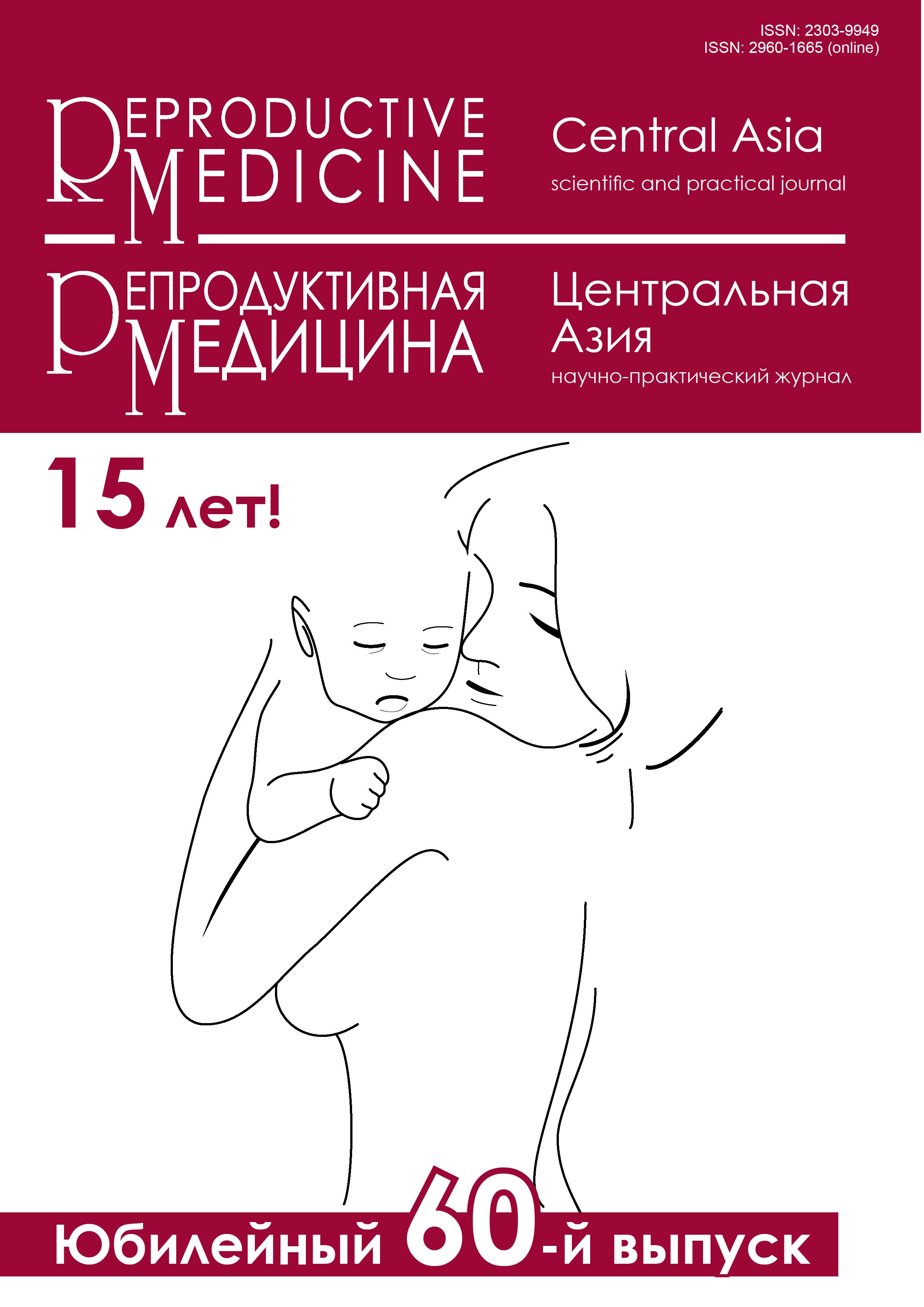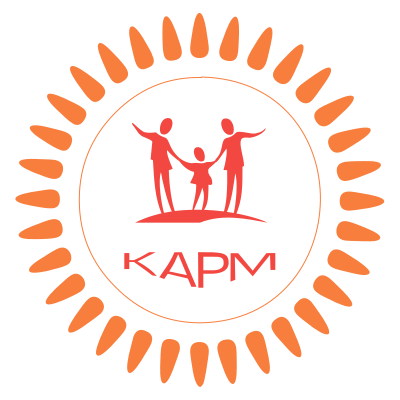Сперматозоид эпигеномы ер бедеулігін бағалаудың диагностикалық құралы болып табылады ма?
DOI:
https://doi.org/10.37800/RM.3.2024.9-15Кілт сөздер:
көмекші репродуктивті технологиялар (КРТ), экстракорпоралдық ұрықтандыру (ЭКҰ), ер бедеулігі, шәует, сперматозоидтар, эпигеном, интрацитоплазмалық сперматозоид инъекциясы (ИКСИ)Аңдатпа
Өзектілік: Сперматазоид эпигеномы шәует сапасында, соның ішінде хроматиннің тұтастығын сақтауда маңызды рөл атқарады. Дегенмен, оның маңыздылығына қарамастан, эмбрионның сәтті дамуы мен клиникалық нәтижелер арасындағы нақты байланыс орнатылмаған.
Зерттеудің мақсаты - Қазіргі заманғы әдебиеттердің қолда бар мәліметтерін қолданып, сперматазоид эпигеномының эмбрионның сапасы мен дамуына әсерін бағалау, сонымен қатар осы процеске қатысатын молекулалық механизмдерді анықтау.
Материалдар мен әдістері: PubMed деректер базасында және Дүниежүзілік денсаулық сақтау ұйымының 2012-2023 жылдарға арналған құжаттарында іздеу келесі кілт сөздерді пайдалана отырып жүргізілді: көмекші репродуктивті технологиялар, in vitro ұрықтандыру, ер бедеулігі, сперматозоидтар, сперматозоидтар, эпигеном және интрацитоплазмалық шәует инъекциясы.
Нәтижелері: Заманауи әдебиеттерді талдау негізінде сперматозоид эпигеномы мен эмбрион дамуы арасындағы байланыс белсенді зерттеу нысаны болып қала беретіні анықталды. Шәует эпигеномының ұрықтандыру процесіне, эмбрионның ерте дамуына және ЭКО бағдарламасының нәтижесіне әсер ету дәрежесі туралы мәселе әлі де пікірталас тудыруда.
Қорытынды: Сперматозоидтың эпигенетикалық өзгерістерді зерттеу бедеуліктен зардап шегетін ерлердің фертильділікке және эмбрион сапасына әсер ететін механизмдерді түсіну үшін жаңа көкжиектерді ашады. Сперматогенезге және эмбриогенезге әсер ететін эпигенетикалық процестерді түсіну ҚРТ нәтижелерін жақсартуға көмектеседі, сондай-ақ ер бедеулігін емдеудің жаңа тәсілдерін ұсынады. Бұл саладағы болашақ зерттеулер ер бедеулігінің механизмдері туралы жаңа білім бере алады.
Библиографиялық сілтемелер
World Health Organization. Multiple definitions of infertility [Internet]. Updated 2020 Feb 04; cited 2024 Sep 26. Available from:
https://www.who.int/news/item/04-02-2020-multiple-definitions-of-infertility
World Health Organization. Infertility [Internet]. Updated 2024 May 22; cited 2024 Sep 25. Available from:
https://www.who.int/news-room/fact-sheets/detail/infertility
Хан Л.В. Психоэмоциональное состояние женщин в программах вспомогательных репродуктивных технологий. В: Сб. Матер. XVIII Междунар. Науч. Конф. Студентов и Мол. Учен. «ǴYLYM JÁNE BILIM-2023»; 2023; Астана. Астана: ЕНУ имени Л.Н. Гумилева, 2023. [Интернет].
Khan LV. Psycho-emotional state of women in assisted reproductive technology programs. In: Collection of materials of the XVIII Int Sci Conf Students and Young Sci “ǴYLYM JÁNE BILIM-2023”; 2023; Astana. Astana: L.N. Gumilev Eurasian National University; 2023. (In Russ.).
https://www.vegu.ru/about_the_university/news/Секция%209.%20Социальные%20науки%20(1).pdf
Meulders B, Jo L, Leroy MR, Xhonneux I, Bols P, Waleed FA. Marei. In vitro, reducing bovine oocyte ATP production with oligomycin affects embryo epigenome. Reproduction. 2023;167(2):230271.
https://doi.org/10.1530/REP-23-0271
Adhikari D, Lee IW, Al-Zubaidi U, Lu J, Zhang QH, Yuen WS, He L, Winstanley YE, Sesaki H, Mann JR, Robker RL, Carroll JB. Depletion of oocyte dynamin-related protein 1 shows maternal-effect abnormalities in embryonic development. Science Advances. 2023;8(24).
https://doi.org/10.1126/sciadv.abl8070
Agarwal A, Mulgund A, Hamada A, Chyatte MR. A unique view on male infertility around the globe. Reproductive Biology and Endocrinology. 2015;13(37).
https://doi.org/10.1186/s12958-015-0032-1
Sharlip ID, Jarow JP., Belker AM, Lipshultz LI, Sigman M, Thomas AJ, Schlegel PN, Howards SS, Nehra A, Damewood MD, Overstreet JW, Sadovsky R. Best practice policies for male infertility. Fertility Sterility. 2002;77(5):873-882.
https://doi.org/10.1016/s0015-0282(02)03105-9
Practice Committee of the American Society for Reproductive Medicine. Diagnostic evaluation of the infertile male: a committee opinion. Fertility Sterility. 2015;103(3):18-25.
https://doi.org/10.1016/j.fertnstert.2014.12.103
Agarwal A, Baskaran S, Parekh N, Cho CL, Henkel R, Vij S, Arafa M, Panner Selvam M. K, Shah R. Male infertility. Lancet. 2021;397(10271):319-333.
https://doi.org/10.1016/S0140-6736(20)32667-2
Levine H, Jørgensen N, Martino-Andrade A, Mendiola J, Weksler-Derri D, Mindlis I, Pinotti R, Swan SH. Temporal trends in sperm count: a systematic review and meta-regression analysis. Human Reproduction Update. 2017;23(6):646-659.
https://doi.org/10.1093/humupd/dmx022
Salonia A, Bettocchi C, Boeri L, Capogrosso P, Carvalho J, Cilesiz NC, Cocci A, Corona G, Dimitropoulos K, Gül M, Hatzichristodoulou G, Jones TH, Kadioglu A, Salamanca JIM, Milenkovic U, Modgil V, Russo GI, Serefoglu EC, Tharakan T, Verze P, Minhas S. EAU Working Group on Male Sexual and Reproductive Health. European Association of Urology Guidelines on Sexual and Reproductive Health-2021 Update: Male Sexual Dysfunction. Eur Urol. 2021;80(3):333-335.
https://doi.org/10.1016/j.eururo.2021.06.007
Tiegs AW, Landis J, Garrido N, Scott R, Hotaling J. Total motile sperm count trend across two continents: evaluation of semen analyses from 119.972 infertile men. Fertility Sterility. 2018;110(4):27.
https://doi.org/10.1016/j.fertnstert.2018.07.093
Skakkebaek NE, Jørgensen N, Andersson AM, Juul A, Main KM, Jensen TK, Toppari J. Populations, decreasing fertility, and reproductive health. The Lancet. 2019;393(10180):1500-1501.
https://doi.org/10.1016/S0140-6736(19)30690-7
Salonia A, Bettocchi C, Capogrosso P, Carvalho J, Corona G, Hatzichristodoulou G, Jones TH, Kadioglu A, Martinez-Salamanca JI, Minhas S, Serefoglu EC, Verze P. EAU Guidelines. Edn. Presented at the EAU Annual Congress Milan 2023 Arnhem, The Netherlands.
https://doi.org/10.1016/j.eururo.2021.06.007
Minhas S, Bettocchi C, Boeri L, Capogrosso P, Carvalho J, Cilesiz NC, Cocci A, Corona G, Dimitropoulos K, Gül M, Hatzichristodoulou G, Jones TH, Kadioglu A, Salamanca JIM, Milenkovic U, Modgil V, Russo GI., Serefoglu EC, Tharakan T., Verze P., Minhas S. EAU Working Group on Male Sexual and Reproductive Health. European Association of Urology Guidelines on Sexual and Reproductive Health-2021 Update: Male Sexual Dysfunction. Eur Urol. 2021;80(5):603-620.
https://doi.org/10.1016/j.eururo.2021.08.014
Sharma R, Biedenharn KR, Fedor JM, Agarwal A. Lifestyle factors and reproductive health: taking control of your fertility. Reprod Biol Endocrinol. 2013;16(11):66.
https://doi.org/10.1186/1477-7827-11-66
Balawender K, Orkisz S. The impact of selected modifiable lifestyle factors on male fertility in the modern world. Central Eur J. Urology. 2020;73(4):563-568.
https://doi.org/10.5173/ceju.2020.1975
Eisenberg ML, Esteves SC, Lamb DJ, Hotaling JM, Giwercman Al, Hwang K, Cheng YS. Male infertility. Nature Rev Primers. 2023;9(1):49.
https://doi.org/10.1038/s41572-023-00459-w
Krausz C, Riera-Escamilla A. Genetics of male infertility. Nature Rev Urol. 2018;15:384.
https://doi.org/10.1038/s41585-018-0003-3
Knez K, Tomazevic T, Zorn B, Vrtacnik-Bokal E, Virant-Klun I. Intracytoplasmic morphologically selected sperm injection improves development and quality of preimplantation embryos in teratozoospermia patients. Reproductive Biomedicine Online. 2012;24(2):168-179.
https://doi.org/10.1016/j.rbmo.2012.03.011
Greco E, Scarselli F, Fabozzi G, Colasante A, Zavaglia D, Alviggi E, Litwicka K, Varricchio MT, Minasi MG, Tesarik J. Sperm vacuoles negatively affect outcomes in intracytoplasmic morphologically selected sperm injection in terms of pregnancy, implantation, and live-birth rates. Fertil Steril. 2013;100(2):379-385.
https://doi.org/10.1016/j.fertnstert.2013.04.033
Martin C, Woodland E. Sperm Selection Technology in ART. Semin Reprod Med. 2021;39(05/06):200-206.
https://doi.org/10.1055/s-0041-1732313
Lukaszuk K, Jakiel G, Potocka IW, Kiewisz J, Olszewska J, Sieg Wl, Podolak A, Pastuszek E, Wdowiak A. IMSI—Guidelines for Sperm Quality Assessment. Diagnostics. 2022;12(1):192.
https://doi.org/10.3390/diagnostics12010192
Calvert J, Patel D, Hotaling JM. Optimal sperm selection in the ICSI era. In: Men’s Reproductive and Sexual Health Throughout the Lifespan. Cambridge, England: Cambridge University Press; 2023. p. 210-217.
https://doi.org/10.1017/9781009197533.028
Colaco S, Sakkas D, Paternal factors contributing to embryo quality. J Assist Rep Genet. 2018;35(11):1953-1968.
https://doi.org/10.1007/s10815-018-1304-4
Cabello Y, Belchín P, González-Martínez M, López-Fernández C, Johnston S, Gosálvez J. The efficacy of novel centrifugation-free sperm selection (Io-Lix) on sperm parameters and ICSI reproductive outcomes. Reprod Biomed Online. 2022;46(2):267-273.
https://doi.org/10.1016/j.rbmo.2022.11.002
Albertini DF. The problem with being choosy regarding sperm selection. J Assist Rep Genet. 2019;36:1297-1298.
https://doi.org/10.1007/s10815-019-01518-6
Denomme MM, McCallie BR, Parks JC, Schoolcraft WB, Katz-Jaffe MG. Alterations in the sperm histone-retained epigenome are associated with unexplained male factor infertility and poor blastocyst development in donor oocyte IVF cycles. Hum Reprod. 2017;32(12):2443-2455.
https://doi.org/10.1093/humrep/dex317
Jenkins TG, Carrell DT. The Sperm Epigenome and Potential Implications for the Developing Embryo. Genet Male Infertil. 2012;143(6):727-734.
https://doi.org/10.1530/REP-11-0450
Stuppia L, Franzago M, Ballerini P, Gatta V, Antonucci I. Epigenetics and male reproduction: the consequences of paternal lifestyle on fertility, embryo development, and children’s lifetime health. Clin Epigenetics. 2015;11(7):120.
https://doi.org/10.1186/s13148-015-0155-4.
Долгушина Н.В., Ратушняк С.С., Сокур С.А., Глинкина Ж.И., Калинина Е.А. Риск анеуплоидии эмбрионов в программах вспомогательных репродуктивных технологий у мужчин с патозооспермией (мета-анализ). Акушерство и гинекология. 2012;7:4-13.
Dolgushina NV, Ratushnyak SS, Sokur SA, Glinkina ZhI, Kalinina EA. Risk of embryo aneuploidy in assisted reproductive technology programs in men with pathozoospermia (meta-analysis). Akusherstvo i genekologiya. 2012;7:4-13. (In Russ.).
https://elibrary.ru/item.asp?id=18201943
Giacone F, Cannarella R, Mongioì LM, Alamo A, Condorelli RA, Calogero AE, La Vignera S. Epigenetics of Male Fertility: Effects on Assisted Reproductive Techniques. World J Mens Health. 2019;37(2):148-156.
https://doi.org/10.5534/wjmh.180071.
Hua M, Liu W, Chen Y, Zhang F, Xu B, Liu S, Chen G, Shi H, Wu L. Identification of small non-coding RNAs as sperm quality biomarkers for in vitro fertilization. Cell Discov. 2019;5:20.
https://doi.org/10.1038/s41421-019-0087-9
Garrido N, Boitrelle F, Saleh RA, Durairajanayagam D, Colpi GM, Agarwal A. Sperm epigenetics landscape: correlation with embryo quality, reproductive outcomes, and offspring’s health. Panminerva Medica. 2023;65(2):166-178.
https://doi.org/10.23736/S0031-0808.23.04871-1
Aston KI, Uren PJ, Jenkins TG, Horsager A, Cairns BR, Smith AD, Carrell DT. Aberrant sperm DNA methylation predicts male fertility status and embryo quality. Fertil Steril. 2015;104:1388-1397.
https://doi.org/10.1016/j.fertnstert.2015.08.019
Cassuto NG, Montjean D, Siffroi JP, Bouret D, Marzouk F, Copin H, Benkhalifa M. Different levels of DNA methylation detected in human sperms after morphological selection using high magnification microscopy. BioMed Research Int. 2016;1-7.
http://dx.doi.org/10.1155/2016/6372171
Cassuto NG, Piquemal D, Boitrelle F, Larue L, Lédée N, Hatem G, Ruoso L, Bouret D, Siffroi JP, Rouen A, Assou S. Molecular Profiling of Spermatozoa Reveals Correlations between Morphology and Gene Expression: A Novel Biomarker Panel for Male Infertility. BioMed Res Int. 2021;2021:1434546.
Жүктеулер
Жарияланды
Дәйексөзді қалай келтіруге болады
Журналдың саны
Бөлім
Лицензия
Авторлық құқық (c) 2024 Жариялауға қабылданған қолжазбаға құқықтар журналдың баспагеріне беріледі. Материалдың толық немесе бір бөлігін қайта басып шығару кезінде автор осы журналдағы негізгі басылымға сілтеме жасауы керек.

Бұл жұмыс Creative Commons Attribution-NonCommercial-NoDerivatives 4.0 бүкіл әлем бойынша .
Осы журналда жарияланған мақалалар тек коммерциялық емес пайдалануды қарастыратын CC BY-NC-ND 4.0 (Creative Commons Attribution - Non Commercial - No Derivatives 4.0 International) лицензиясы бойынша лицензияланады. Бұл лицензия бойынша пайдаланушылар авторлық құқықпен қорғалған материалды көшіруге және таратуға құқылы, бірақ оларды коммерциялық мақсатта өзгертуге немесе пайдалануға рұқсат етілмейді. Лицензиялау туралы толық ақпаратты https://creativecommons.org/licenses/by-nc-nd/4.0/ сайтында алуға болады.




